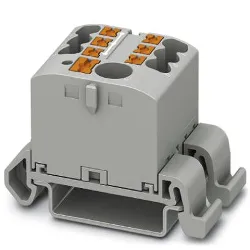| Company: | Xingtai Shanfeng special rubber products Co., Ltd |
| Location: | China - Hebei,Hetou Industrial Zone, Renze District, Xingtai City, Hebei Province |
| Price: | 1.12/pcs |
| Contact: | 刘俊英(Salesperson) |
| Contact Me: |
Mobile:+86-13290595892 |
High Abrasion Resistance Double Lips Oil Seal NBR FKM Shaft Seal
When it comes to assessing the quality of oil seals, knowledge is power. Understanding the key factors that influence seal performance can help you make informed decisions and avoid costly mistakes. Here, we delve into the essential aspects to consider when judging the quality of an oil seal.
One crucial aspect is the compatibility of the oil seal material with the operating environment. Different applications require different materials, whether it's synthetic rubber, polyurethane, or fluorocarbon. Assessing the material's chemical resistance, temperature tolerance, and flexibility is essential in determining its suitability for the intended application.
Another vital consideration is the sealing mechanism employed by the oil seal. Whether it's a lip seal, mechanical seal, or labyrinth seal, each design has its advantages and limitations. Examining the seal's ability to maintain a tight barrier against contaminants and pressure can give valuable insights into its overall quality.
Additionally, evaluating the manufacturing process and quality control measures can provide clues about the reliability of the oil seal. Look for certifications, adherence to industry standards, and customer reviews to gauge the manufacturer's reputation for producing high-quality seals.
In essence, judging the quality of an oil seal requires a holistic approach that considers materials, design, sealing mechanism, and manufacturing standards. By taking a comprehensive view and leveraging industry expertise, you can confidently select oil seals that meet your performance expectations and deliver long-lasting reliability.
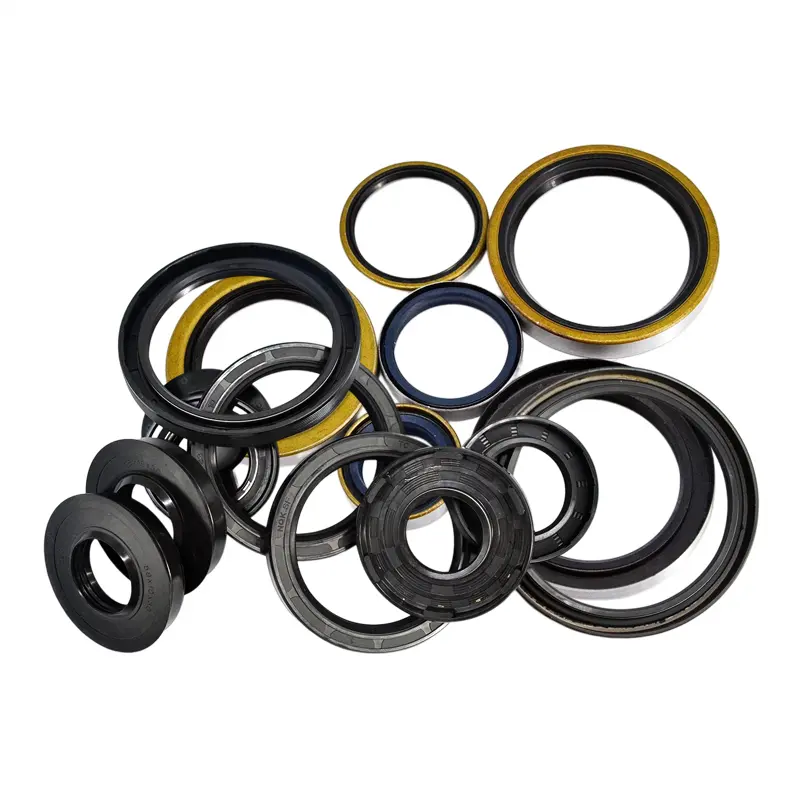
Disclaimer:All information is provided by registered users. You may assess risks based on corresponding qualifications.
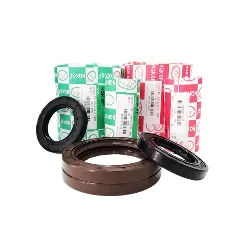 China Factory Wholesale Price Rubber Shaft Oil Seal NQK·SF Oil Seal
China Factory Wholesale Price Rubber Shaft Oil Seal NQK·SF Oil Seal
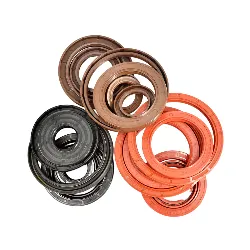 NQK SF Factory Direct Sale Framework Oil Seals NBR FKM Rubber Shaft Seal
NQK SF Factory Direct Sale Framework Oil Seals NBR FKM Rubber Shaft Seal
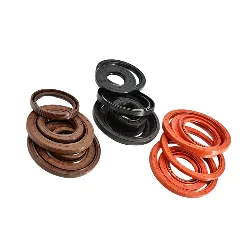 Made in China Factory Supply High Pressure Oil Seals NBR FKM FPM Shaft Seal
Made in China Factory Supply High Pressure Oil Seals NBR FKM FPM Shaft Seal
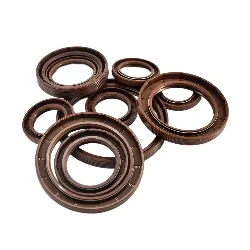 Wholesale Customized NBR FKM Rubber Shaft Seal High Pressure Industry Oil Seals
Wholesale Customized NBR FKM Rubber Shaft Seal High Pressure Industry Oil Seals
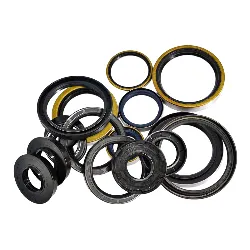 High Abrasion Resistance Double Lips Oil Seal NBR FKM Shaft Seal
High Abrasion Resistance Double Lips Oil Seal NBR FKM Shaft Seal
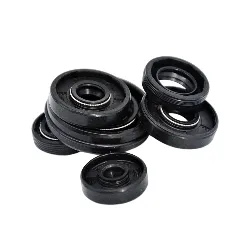 High Quality Cars Oil Seal NBR FKM Wear Resistant Skeleton Oil Seal
High Quality Cars Oil Seal NBR FKM Wear Resistant Skeleton Oil Seal
![PTFIX 6 12X2,5-NS35A BU - Distribution block]() PTFIX 6 12X2,5-NS35A BU - Distribution blockPTFIX 6/12X2,5-NS35A BU - Distribution block 3273222 Distribution block , Block with horizontal alignment and integrated supply , nom ." "
PTFIX 6 12X2,5-NS35A BU - Distribution blockPTFIX 6/12X2,5-NS35A BU - Distribution block 3273222 Distribution block , Block with horizontal alignment and integrated supply , nom ." "![PTFIX 6 12X2,5-NS35A RD - Distribution block]() PTFIX 6 12X2,5-NS35A RD - Distribution blockPTFIX 6/12X2,5-NS35A RD - Distribution block 3273224 Distribution block , Block with horizontal alignment and integrated supply , nom ." "
PTFIX 6 12X2,5-NS35A RD - Distribution blockPTFIX 6/12X2,5-NS35A RD - Distribution block 3273224 Distribution block , Block with horizontal alignment and integrated supply , nom ." "![PTRV 4-PV、RD - Potential distributors]() PTRV 4-PV、RD - Potential distributorsPTRV 4-PV /RD - Potential distributors 3270246 Potential distributors , nom ." "
PTRV 4-PV、RD - Potential distributorsPTRV 4-PV /RD - Potential distributors 3270246 Potential distributors , nom ." "![PTRV 4-PV、BU - Potential distributors]() PTRV 4-PV、BU - Potential distributorsPTRV 4-PV /BU - Potential distributors 3270247 Potential distributors , nom ." "
PTRV 4-PV、BU - Potential distributorsPTRV 4-PV /BU - Potential distributors 3270247 Potential distributors , nom ." "

